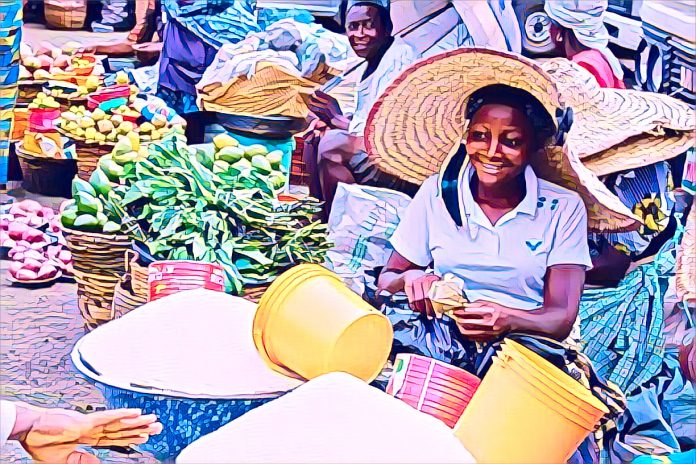The astronomical surge in food prices has forced many Nigerian households to adopt various coping mechanisms to survive, a Financial Vanguard survey revealed.
The latest inflation report from the National Bureau of Statistics (NBS) indicated that prices of tomatoes, beans, and garri have increased by more than 200% within a year.
Many families are skipping meals and turning to alternatives. “With fresh tomatoes unaffordable, we rely on tomato paste and palm fruits,” said Mrs Kehinde Salami, a retired civil servant.
Salami added, “The rising cost of goods is terrible. Beans, yams, and tomatoes are now luxury items. A paint rubber of honey beans went from N6,000 to N11,000.”
Mrs Dorin Fehintola, a PoS agent, shared similar struggles. “It’s not funny anymore. We used to eat beans twice a week, now it’s once to save cost.”
Families are substituting tomato sauce with vegetable leaf sauce, carrot sauce, and palm fruit sauce. Many have stopped buying yam and bread, opting for cocoyam or spaghetti instead.
The inflation has made life unbearable for food vendor Mrs Kemi Bamidele. “The government should have put palliative measures in place before removing the subsidy. People are very hungry,” she said.
Businesswoman Mrs Nkem Chukwujekwu noted that most food items have become unaffordable. “We replace stew with palm fruit stew. A paint bucket of palm fruit went from N1,800 to N4,700.”
Grandmother Mrs Ngozi Egwuagha described life in Nigeria as a nightmare. “Beans, rice, garri, and yam are now beyond the reach of common folks. A derica of honey beans is over N2,000.”
Sales executive Mr Benjamin Nzekwe lamented, “Eating two square meals a day is now a problem. The cost of food is unbearable. We can’t afford meat or fish.”
In Enugu, buyers at a market said they hadn’t made stew in a long time. Those who still make stew opt for cheaper, lower-quality tomatoes. “We mix beans with rice due to high costs,” said Madam Bridget.
Farmer Madam Gladys shared her struggles, saying, “We make vegetable sauce and use locally sourced mushrooms as a substitute for meat. Finding affordable rice is challenging.”
At Abakpa Market, sellers complained of poor sales despite having large quantities of tomatoes. One seller attributed the low demand to high transportation costs and fuel prices. “I struggle to sell just one basket of tomatoes,” said a market seller.
The NBS reported that prices of tomatoes, beans, and potatoes have risen by over 200% in the last year. Chairman of Mile 12 International Perishable Market, Alh. Shehu Usman, blamed the crisis on insecurity. “Most farmers in the North have been chased away by bandits. The government must provide security for people to continue farming,” he said.
Chairman of Ile Epo Market, Alh. Taofik Olorunkemi added that insecurity and increased petrol prices have led to higher transportation costs. “Many villagers no longer bring food items to the market. We have to source them ourselves,” he stated.
In response, the federal government suspended import duties and taxes on essential food items to lower prices. Minister of State for Agriculture and Food Security, Dr Aliyu Abdullahi, stated, “We are putting all efforts in place to ensure the availability of food across the country.”
The government is also exploring new farming techniques to ensure food security and planning for the next dry season. “We are doing everything necessary to reverse the current trend and ramp up production,” Abdullahi said.
The situation underscores the urgent need for effective measures to address food inflation and ensure food security. Nigerian families are struggling, and the government’s actions will be crucial in alleviating their plight.



